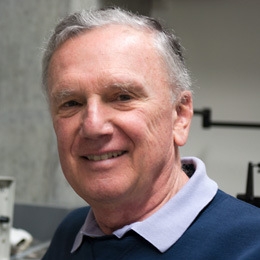
Since January, I have had the privilege of working in the McClay lab on a project involving the transfating of cells in the sea urchin embryo. As I begin my journey into science research with all the possibilities ahead, I felt it to be important to talk to someone who can look back on their research career to share some insight on being a scientist. Who better to talk to about his experiences than my PI, Dr. Dave McClay.
Dr. McClay began his journey in higher education at Pennsylvania State University where his father taught as a professor. He enjoyed many subjects, but biology just seemed to interest him slightly more. However, biology can range from molecular biology to evolutionary biology to ecology. So how did he end up in developmental biology? That would be thanks to his professor who recommended he look into developmental biology which he later fell in love with. He then went to the University of North Carolina in Chapel Hill for graduate school because he was offered a fellowship. After receiving his PhD, he spent 5 months at the University of Chicago working as a postdoctorate associate before getting a phone call to interview at Duke. He flew to Duke, had an interview, gave a seminar presentation, and the rest was history.
One question Dr. McClay often gets asked is why sea urchins? How did he get into using sea urchins as a model organism? He said that when he was in graduate school, he did a research project in Bermuda. This was the gateway to his desire to work at a marine lab every summer and he has worked in one ever since through an NSF grant which allowed him to work in Bermuda for 18 summers, Woods Hole for 12 summers, and France for another 18 summers. When asked which marine lab location he prefers, he says he loves all of them for different reasons: diving for your own animals in Bermuda, interacting with world-class scientists in Woods Hole, and being by the beautiful ocean in France.
One aspect of his job that he really enjoys is teaching. He began teaching anatomy to nursing students which is when he realized he loved teaching. This is the reason he knew he wanted to go into academia, so he could do the two things he loves: research and teach. He currently teaches 2 courses for undergraduates (Cell Biology which I am taking next semester and Developmental Biology) and 3 courses for graduate students (a module on developmental biology, a module on gene regulatory networks, and a developmental biology colloquium).
For my final question, I asked if he had any words of wisdom to share to someone beginning their journey into science research. He said that you should choose something that you love to do but be aware that you need to work hard as well because “it’s not a sprint but a marathon.” There are a lot of difficulties in science research but there are so many benefits as well and you just have to keep pushing through the hard parts for those benefits.
He ended our conversation with a phrase that really resonated with me and I will always keep in mind: “research is a career where the mind matters a lot so think, be creative, solve problems.”

